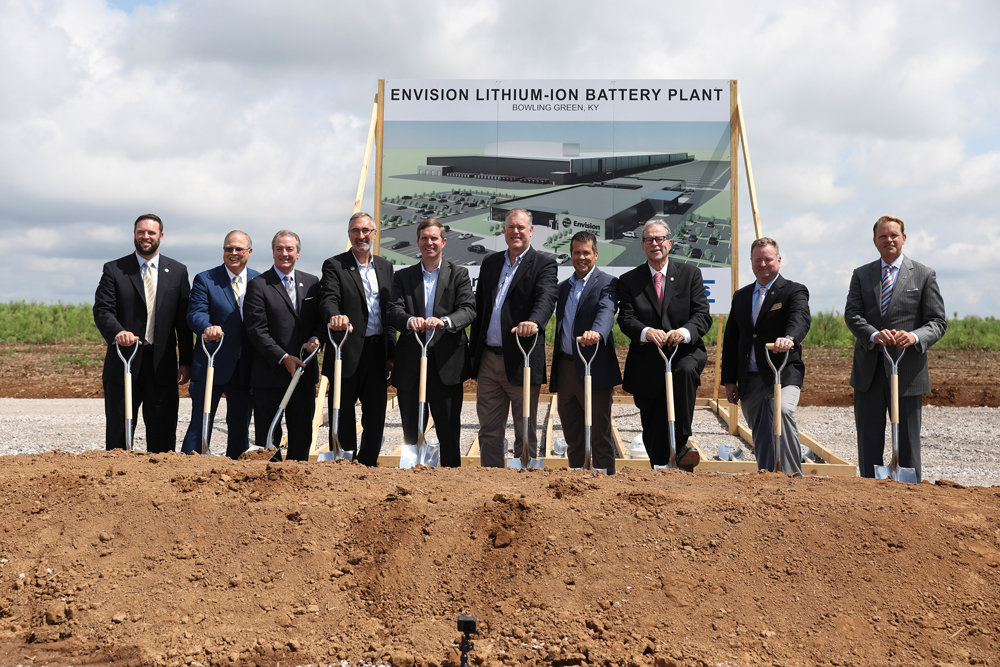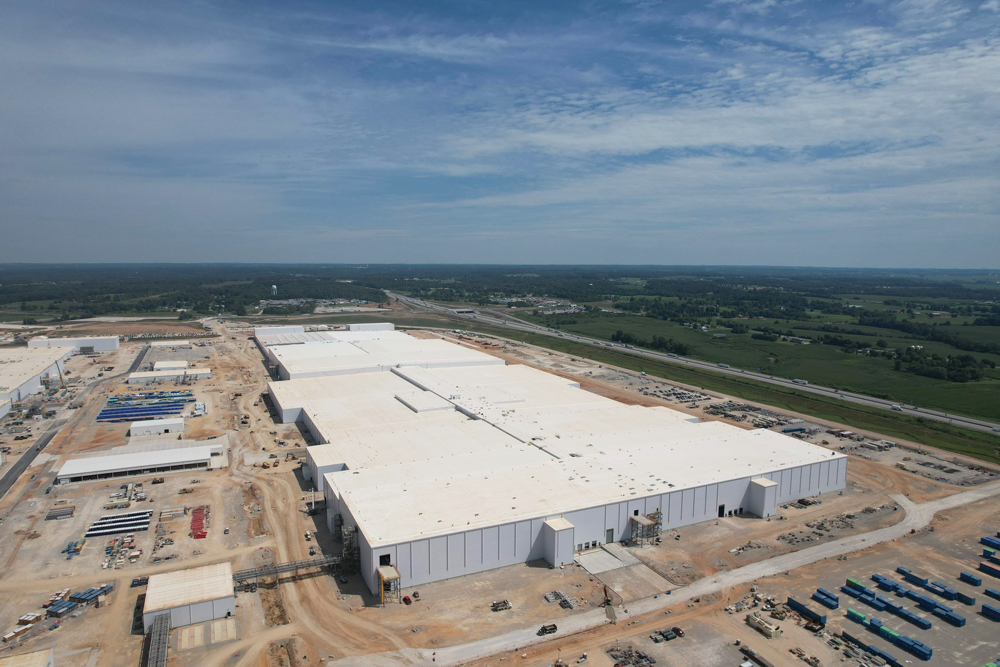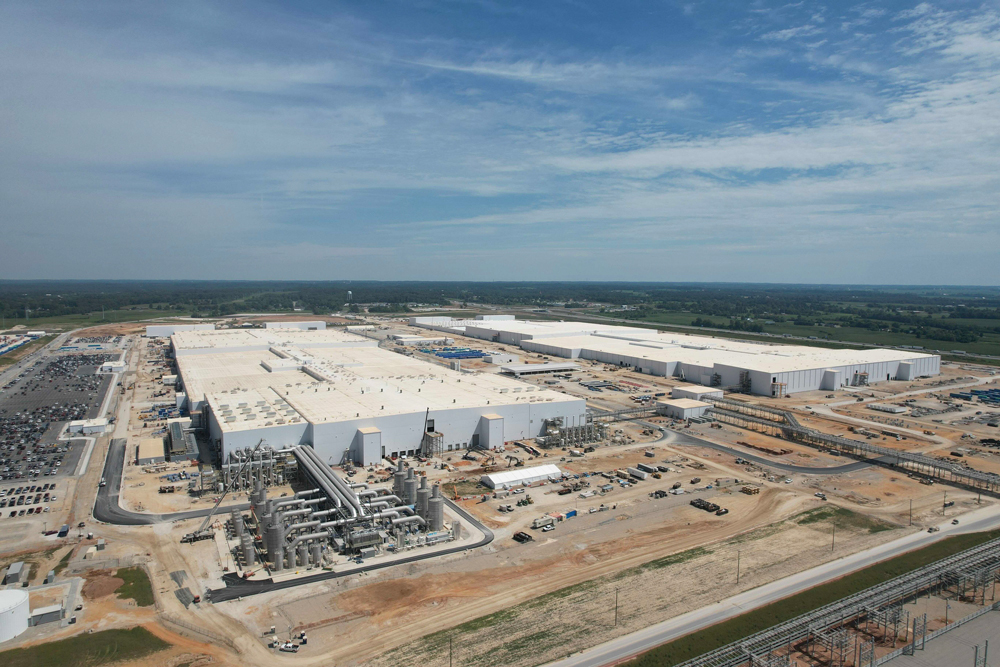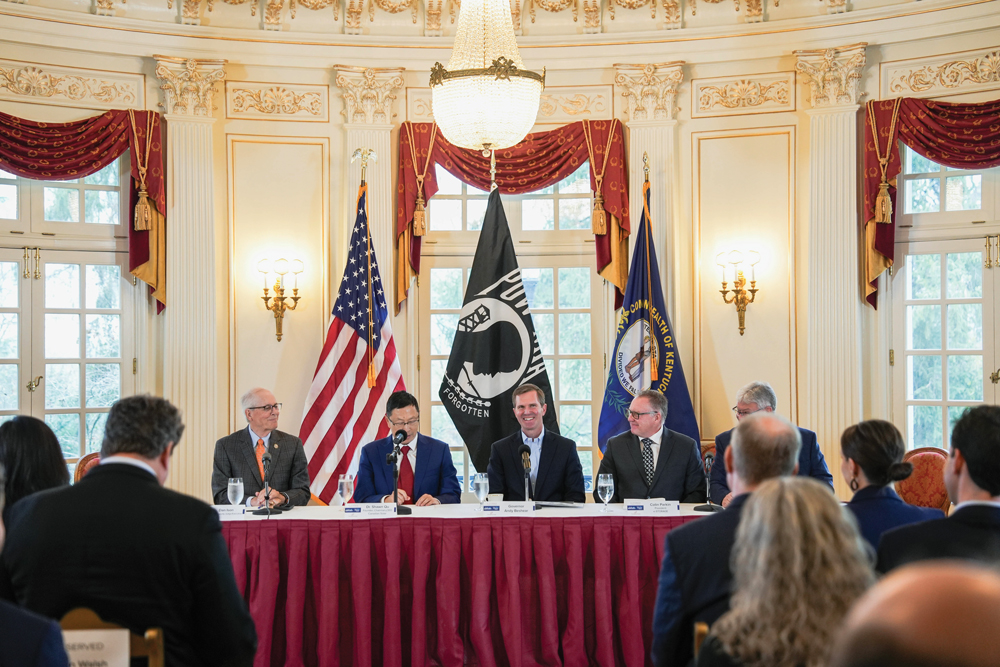The commonwealth solidifies its role as the nation’s EV capital.
As the nation drives forward on the path to a sustainable energy transition it seems all roads lead to Kentucky. The Bluegrass State’s robust automotive industry has laid a natural foundation for industry leaders to integrate electrification efforts.
A strategic focus has been placed on boosting production of battery-powered electric vehicles from automotive giants Toyota, Ford and General Motors within their Kentucky-based operations, introducing a stream of multi-billion-dollar investments from suppliers aiming to advance industry activity forward.
Subsequently, an expansive supplier network has continued to gain momentum in the state, manufacturing EV-related products such as motors, structural products, assemblies, air springs, nanomaterials, battery components and more. This has positioned Kentucky to support every phase of the EV lifecycle, encompassing manufacturing and recycling of batteries to EV parts production and vehicle assembly.
In 2024, Kentucky’s EV and energy storage industries welcomed five private sector new-location and expansion projects that brought more than $1.5 billion in investment, resulting in the creation of about 1,700 new jobs. Since 2019, these sectors scored 28 projects whose investments total $12.4 billion and have introduced more than 11,800 jobs.

AESC is creating 2,000 jobs in Bowling Green.
Coming Soon
Previously announced projects, including the $5.8 billion BlueOval SK Battery Park in Glendale and AESC’s $2 billion EV battery gigafactory in Bowling Green, are geared up to begin operations. The pair of blockbusters are the two largest economic development projects in Kentucky’s history.
“We conducted a rigorous site selection process which considered site size, shovel ready, their business environment, government incentives, workforce and the availability of renewable energy,” BlueOval SK said in a statement.
Since 2019, Kentucky has scored 28 new & expansion projects focused on EV & Energy Storage
Ford Motor Company and South Korea-based EV battery manufacturer SK On announced the first of two planned lithium-ion battery plants in the state, named Kentucky 1, would begin initial production in 2025. Construction work on Kentucky 2 is still underway at the 1,500 acre site, which will bring the final 2,500 jobs for a total of 5,000 jobs between the two facilities. Once complete, production capacity at BlueOval SK will reach 80 gigawatt hours (GWh). Batteries manufactured here will be used for future Ford and Lincoln EV models.


BlueOval SK is set to begin production at its $5.8 billion EV battery operation in Glendale in 2025.
Photos courtesy of BlueOval SK
Meanwhile, 73 miles south in Bowling Green, Japan-based AESC will also launch its 30 GWh EV and energy storage battery facility in the coming months. A new generation of battery cells will be produced at the site, offering 30% more energy density than previous generations. These batteries allow for reduced charging times while supporting increased range and efficiency. By 2027, AESC will manufacture enough batteries to power 300,000 EVs per year, creating 2,000 jobs.
Investments Totaling Over
$12.4 B
& More Than
11,800
Jobs Created
“We are confident that this gigafactory will not only strengthen local economies by creating thousands of new competitive clean energy jobs but also advance Kentucky’s position at the forefront of the fast-growing and global EV industry,” said AESC U.S. Managing Director Jeff Deaton.
In 2024, Toyota announced that its investment into the Toyota Motor Manufacturing Kentucky (TMMK) plant, located in Georgetown, would receive a $1.3 billion boost. TMMK’s operations will not only evolve to produce battery electric vehicles (BEV) but will now additionally establish a battery pack assembly line at the facility, which will be used for production of BEV’s and hybrid models.
Toyota revealed that it will manufacture an all-electric three-row SUV model, bZ5X, made specifically for the U.S. market. The company has stated that the site will play a critical role in accelerating Toyota’s global electrification strategy, which looks to offer EV or hybrid versions of all Toyota models by 2025.
Powering North America
Just outside of Louisville, the city of Shelbyville landed on the radar of e-STORAGE as the ideal location to cater to rising demand in North America for utility-scale battery energy storage systems. The arrival of the operation, known as Shelbyville Battery Manufacturing, adds a new level of diversity to Kentucky’s growing battery manufacturing ecosystem, creating 1,572 high-tech jobs.
“They have acquired the largest building in this region at over 1 million square feet and will become the largest employer in Shelby County,” said Shelby County Industrial and Development Foundation President and CEO Ray Leathers. “As a result of our U.S. central location, infrastructure and available land we’re in the process of experiencing pretty phenomenal growth.”
The $712 million battery cell, module and packaging manufacturing facility will produce self-contained, modular utility-scale energy storage solutions. These systems will play a key role in enabling solar and wind energy deployment to be made more reliable and dispatchable around the nation for utility companies and project developers, according to the company. As Shelbyville is positioned to reach nearly 70% of the U.S. population within six hours due to ample access to I-64, I-65, I-71 and I-75, Shelbyville Battery Manufacturing can distribute its product year-round with ease.
“This new plant will allow us to provide our U.S. customers with cutting-edge, American-made battery energy storage products,” said e-STORAGE President Colin Parkin.
The greatest benefit to building domestic supply of battery energy storage systems is the ability to enhance grid resilience, reduce carbon emissions and streamline U.S. clean energy goals. The facility will have an initial capacity of 3 GWh once operational by late 2025, scaling to 6 GWh by the end of 2026.
The facility will house its own on-site R&D lab, bringing collaboration opportunities to the region’s local universities.
Leathers said the company is in the midst of modifications to the existing facility. He will soon meet with e-STORAGE’s leadership team to ensure resources and support are available as the project nears completion.
“I expect to see a lot more activity in this coming year,” noted Leathers. “I anticipate because of our location and resources we have that the Tier 2 and Tier 3 suppliers to EV factories will be looking for locations, in addition to the renewable energy sectors.”

